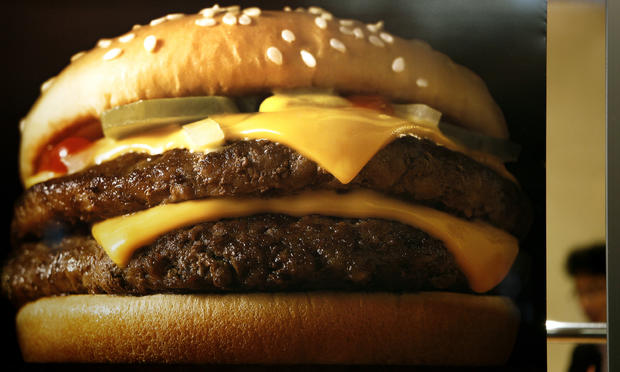Panera vows to get rid of "no no" ingredients
Want to grab a dinner of artificial smoke flavor and glycerol ester of wood rosin?
If that doesn't sound appetizing to you, Panera Bread (PNRA) agrees. The fast-casual chain on Tuesday published its "no no list," or dozens of ingredients that the company will either stop using by the end of 2016 or has already cut from its menu. Artificial smoke flavor, a flavor enhancer, and glycerol ester of wood rosin, an additive used to keep oils evenly mixed in water, are among those ingredients that will disappear by the end of next year.
While Panera is claiming to be the first national restaurant company to share a list of unacceptable ingredients, it's certainly not the first to move toward greater transparency and healthier items. Chipotle (CMG), for instance, has worked its way into the good graces of both diners and investors by sourcing humanely raised meat. Food manufacturers such as Nestle and Hershey are also pledging to remove items such as artificial flavorings and high-fructose corn syrup. With Americans increasingly linking their health with the quality of foods they consume, the pressure is on restaurant chains and food companies to respond.
"My kids are eating Panera 10 to 11 times a week," Panera Bread founder Ron Shaich told Fortune. "I don't want to serve them junk."
Panera has already garnered a reputation for offering "healthier" options than fast-food chains such as McDonald's. It's long offered chicken raised without antibiotics, for instance, while its bread doesn't include artificial preservatives. The chain has already ousted almost three dozen additives from its kitchens, including MSG, the company said today.
But Panera is no longer one of the few companies pledging to serve cleaner, simpler food to its customers. Even fast-food giant McDonald's (MCD) has joined in the movement, saying last month that it would stop serving chicken treated with human antibiotics.
To be sure, these corporations aren't offering these healthier options simply to be better global citizens. There's clearly money to be found in organic and additive-free foods, thanks to rising demand for ingredients labeled with terms such as "natural" or "local." About 37 percent and 35 percent of consumers say they regularly buy foods with those respective labels, an even higher percentage than the 32 percent who say they buy foods with "organic" labels, according to a survey last year from the International Food Information Council Foundation.
"In this day and age, the consumer who was satisfied with reduced fat or fat-free 20 years ago is not satisfied with that any more," Vincent Fantegrossi, chief executive of the Back to Nature Foods Company, told The New York Times.
Companies that have provided customers with "natural" or locally sourced foods are often darlings in the investment community. Chipotle, for instance, has seen its shares rise 22.5 percent in the past year, while Panera's stock has increased more than 16 percent. By comparison, shares of McDonald's, whose food has been singled out by books such as "Fast Food Nation" as supporting factory farming and industrialized agriculture, have declined 5.1 percent.
For Panera, eliminating the ingredients may not be easy. About 168 of Panera's 460 ingredients will need be reformulated, according to Fortune. The chain required four months to reformulate just one salad dressing, its Greek dressing, the magazine noted.
"We are increasingly focused on what is in our food and ridding ourselves of a lot of chemical additives," Shaich told the publication. "That isn't going to go away. It is going to intensify, that discussion."
